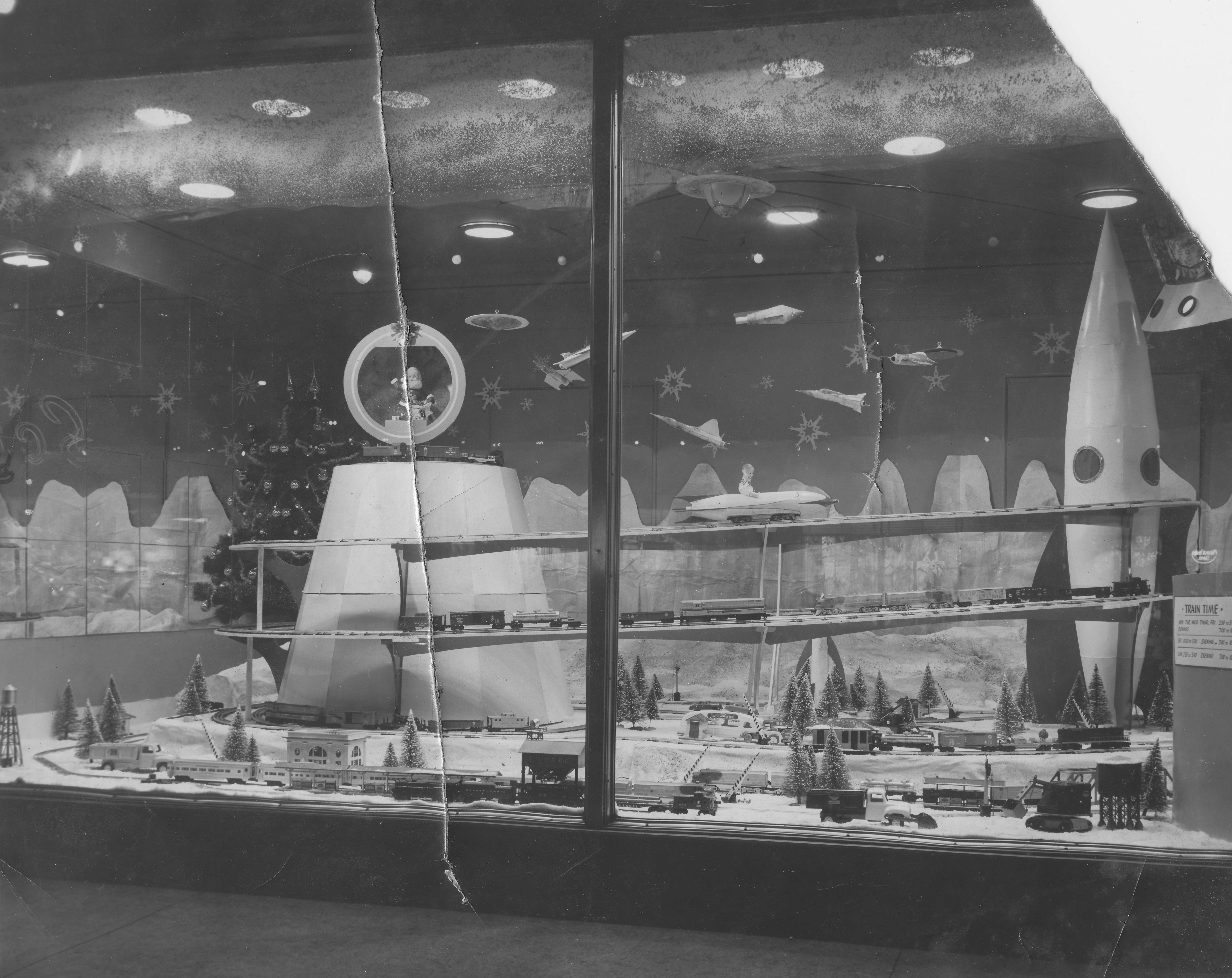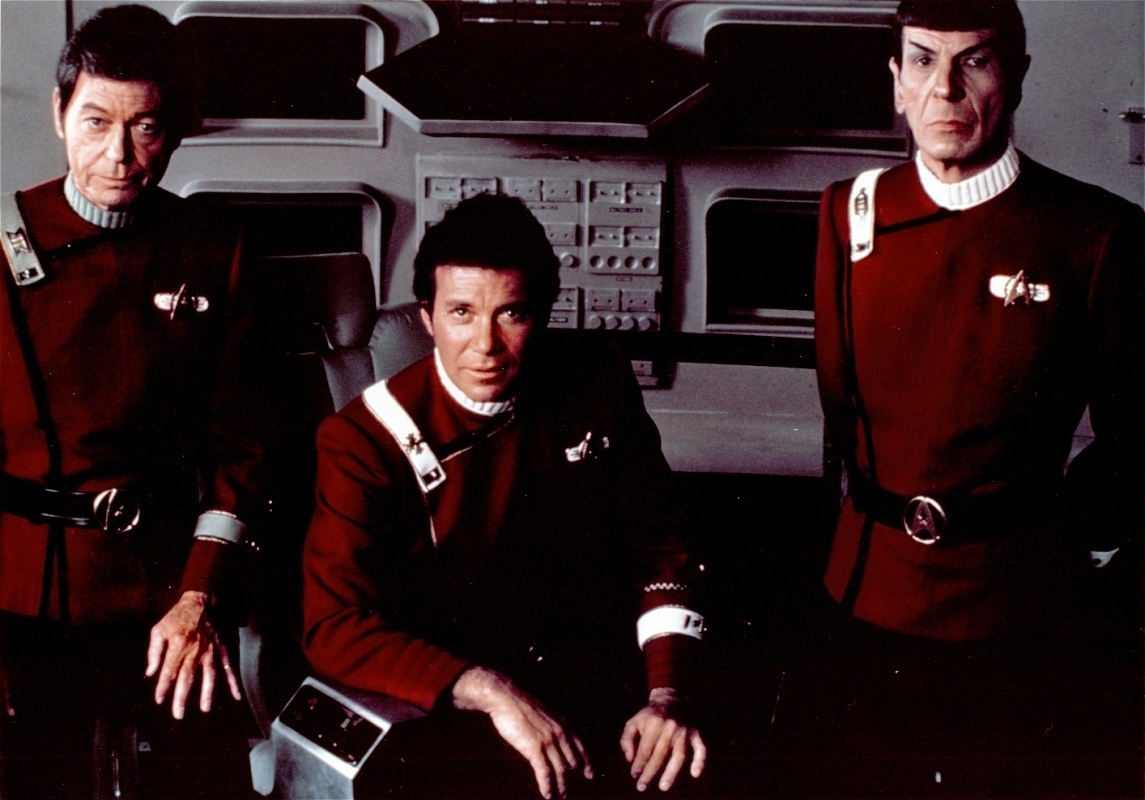Around when I was researching the 1920s in sci-fi history, I wrote a similar post to this one about the various eras leading up to the “Golden Age” of sci-fi that lasted from the 1930s to the 1950s. Well, just like most sci-fi franchises these days, I’m updating that concept for the modern times.
Here are five eras of science fiction history after the “Golden Age”:
1. Space Age Optimism (Late 1950s- late 1960s)-

In spite of the threat of nuclear war, the western world still held out hope for a glorious future, where mankind had tamed the world with technology, and reached out for the stars. Star Trek: The Original Series is one of the best examples of this humanist ideology. Design and architecture were also influenced by this projection into the future. The pinnacle of this era of sci-fi history was probably the Space Race between the United States and the Soviet Union, when real human beings fulfilled the prophecies of science fiction writers by setting out into space, and setting foot on the moon.
2. Space Age Pessimism (1970s)-

Man had been to space, and to the moon, and yet the world was still a fallen place. Sci-fi writers of the 1970s questioned the bright future that had previously envisioned through stories like Logan’s Run, and Alien. Science fiction might have slid further down into this dystopian cynicism were it not for a certain 1977 space fantasy that split the genre into two diverging paths.
3. Franchise Sci-fi/ Cyberpunk (1980s)-

After Star Wars, there was a saturation of space adventures like Battlestar Galactica in popular culture. Many creators followed Star Wars’ example, and attempted to build multi-faceted franchises that appealed to younger audiences. However, not all science fiction fell into this trend. A new sci-fi sub-genre called cyberpunk became popular with some. Blade Runner, the film based off of Philip K. Dick’s “Do Androids Dream of Electric Sheep”, is a good example of the fusion of high technology and the dark underbelly of society.
4. Nostalgia (1990s-2010s)-

The most recent trend in mainstream science fiction has been a return to the stories of our youth. I’m not saying that there have been no original ideas in the past twenty or so years. I’m only noticing the tendency to remake old material. The 1990s saw some great new ideas, such as Stargate, which took their cues from previous sci-fi and lovingly referenced it. More recently, we have seen continuations of older franchises, such as Star Wars, and an exorbitant amount of reboots and adaptations, such as the Star Trek reboots, and the Marvel Cinematic Universe adaptations of Marvel Comics’ stories. This isn’t all bad. In fact, some of these are very good stories that deserve to be brought back to public attention. However, it does leave one to wonder what the contribution of this generation will be to the future of the genre.
5. Metaphysical Focus? (2010s-?)
What does the future hold for science fiction? For many years now, science has been tied in with the secular, and science fiction has been considered a secular art. However, with the increasing religious tension in the world, and the quest of the millennial generation for metaphysical significance in life, it is becoming more and more evident that secularism isn’t going to lead us to that bright and shining future. To me, it seems that science fiction must incorporate spiritual elements as reality more and more in order to be honest about the world around us. I think that now is the prime time for Christians to break into the genre, and make an impact on the culture through sci-fi stories. Maybe I’m just an idealist, and need to hop in my time machine and go back to the 1950s, but I really do see an awakening in Christian geek culture that could lead to a new wave of literature, TV, and film that recognizes the truth of both the physical and metaphysical aspects of humanity.
What do you think of these categories? What do you think is coming next for science fiction? I’d love to hear your opinions in the comments.
Keep on glowing in the dark,
Elora











